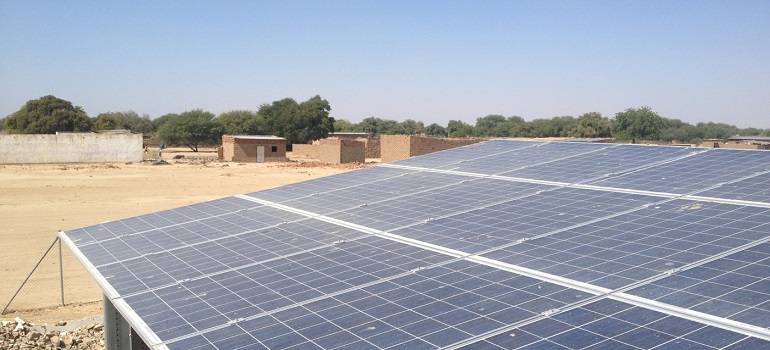
India witnessed record installation of 1,538 MW of solar rooftop in the year ended September 30, taking the total capacity in the category to 3,399 MW, according to a report. “There was record installation of 1,538 MW (rooftop solar) in last 12 months (up 75 pc year-on-year) ended September 2018. Total rooftop solar capacity reached 3,399MW on September 30, 2018,” said the report by consulting firm Bridge to India.
It said rooftop solar capacity is expected to touch 15.3 GW by March 2022 in a status quo scenario. This is about 38 per cent of the government’s 40 GW target.
According to the report, commercial and industrial installation consumer segment dominates the market with 70 per cent share, while residential segment continues to lag with just 9 per cent.
It also stated that OPEX model where third party developers own and develop projects on customer sites, is still growing faster than rest of the market and added 559 MW capacity in the last 12 months (35 per cent of the market share).
The study also highlighted that Maharashtra (473 MW), Tamil Nadu (312 MW), Karnataka (272 MW), Rajasthan (270 MW) and Uttar Pradesh (223 MW) are the top five states accounting for 54 per cent share of the total market.
It said the CAPEX market (where entire rooftop is owned by rooftop owners) is even getting more fragmented with top 10 players having a share of only 18 per cent (21 per cent last year). The top 3 players include Tata Power (4.4 per cent), Mahindra (2 per cent) and Sunsure (2 per cent).
The study also stated that in invertor market, Chinese players are growing and command a combined share of 43 per cent.
Bridge to India MD Vinay Rustagi said: “75 per cent growth in a year plagued by safeguard duty and GST uncertainty is absolutely fantastic. Ongoing fall in module (solar) price should continue to drive growth in the next few years.
“Rooftop solar has huge growth potential and should be given more policy support particularly when utility scale solar is increasing facing acute land and transmission connectivity challenges.”
Source: PTI
